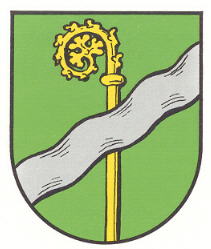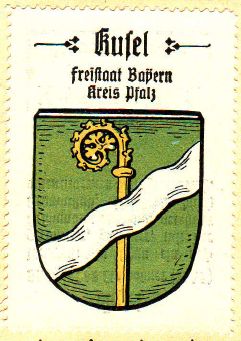Kusel: Difference between revisions
Jump to navigation
Jump to search
Knorrepoes (talk | contribs) m (Text replace - "'''Origin/meaning :'''<br/>" to "====Origin/meaning====") |
Knorrepoes (talk | contribs) m (Text replace - "|width="15%"|50 px|right |}" to "|width="15%"|50 px|right |}<seo title="Wappen, Gemeindewappen" />") |
||
| Line 3: | Line 3: | ||
|width="70%" align="center" |'''Heraldry of the World<br/>Civic heraldry of [[Germany]] - [[Deutsche Wappen|Deutsche Wappen (Gemeindewappen/Kreiswappen)]]''' | |width="70%" align="center" |'''Heraldry of the World<br/>Civic heraldry of [[Germany]] - [[Deutsche Wappen|Deutsche Wappen (Gemeindewappen/Kreiswappen)]]''' | ||
|width="15%"|[[File:Germany.jpg|50 px|right]] | |width="15%"|[[File:Germany.jpg|50 px|right]] | ||
|} | |}<seo title="Wappen, Gemeindewappen" /> | ||
Revision as of 17:47, 5 November 2012
| Heraldry of the World Civic heraldry of Germany - Deutsche Wappen (Gemeindewappen/Kreiswappen) |
KUSEL
State : Rheinland-Pfalz
District (Kreis) : Kusel
Additions : 1939 Diedelkopf; 1974 Bledesbach
Verbandsgemeinde : Kusel
Origin/meaning
The arms were granted on July 31, 1848 by King Max II of Bayern.
The arms are based on elements from the old seals of the city. The wavy bend is the Kuselbach river that runs through the city. The staff is a symbol of St. Remigius. A large part of the area belonged since the 10th to a Benedictine Abbey, founded from Reims in France. Its patron saint was St. Remigius. Around the abbey Kusel the city developed and received city rights around 1286.
| The arms in the Kaffee Hag albums +/- 1925 |
Literature : Stadler, K. : Deutsche Wappen - Bundesrepublik Deutschland. Angelsachsen Verlag, 1964-1971, 8 volumes.


